
Gstaad: Switzerland's Alpine Gem
Nestled in the Swiss Alps, Gstaad is a charming village known for its picturesque landscapes and luxurious lifestyle. This idyllic destination is popular among celebrities and royalty, but it also welcomes travelers seeking tranquility and natural beauty. With its wooden chalets, pristine ski slopes, and a vibrant cultural scene, Gstaad offers a unique blend of rustic charm and modern elegance. During winter, Gstaad transforms into a snowy paradise, attracting ski enthusiasts from around the globe. The region boasts over 200 kilometers of ski runs, catering to all levels of expertise. Besides skiing, visitors can enjoy activities such as snowboarding, ice skating, and horse-drawn sleigh rides. In summer, the alpine meadows and lush forests offer great opportunities for hiking, mountain biking, and hot air ballooning. Gstaad is also a hub for cultural events and festivals. The annual Menuhin Festival is a highlight, featuring world-class classical music performances. Gourmet cuisine is another attraction, with numerous restaurants offering everything from traditional Swiss dishes to international delicacies. Whether you're here for adventure, relaxation, or cultural enrichment, Gstaad promises an unforgettable experience.
Local tips in Gstaad
- Visit during off-peak seasons to enjoy a more peaceful experience and lower prices.
- Make reservations for popular restaurants and events well in advance, as they can fill up quickly.
- Don't miss the opportunity to try fondue and raclette, traditional Swiss dishes that are local favorites.
- Explore the surrounding villages and trails for a more authentic Swiss experience away from the main tourist spots.
- For a unique perspective, take a hot air balloon ride over the stunning alpine landscape.
Gstaad: Switzerland's Alpine Gem
Nestled in the Swiss Alps, Gstaad is a charming village known for its picturesque landscapes and luxurious lifestyle. This idyllic destination is popular among celebrities and royalty, but it also welcomes travelers seeking tranquility and natural beauty. With its wooden chalets, pristine ski slopes, and a vibrant cultural scene, Gstaad offers a unique blend of rustic charm and modern elegance. During winter, Gstaad transforms into a snowy paradise, attracting ski enthusiasts from around the globe. The region boasts over 200 kilometers of ski runs, catering to all levels of expertise. Besides skiing, visitors can enjoy activities such as snowboarding, ice skating, and horse-drawn sleigh rides. In summer, the alpine meadows and lush forests offer great opportunities for hiking, mountain biking, and hot air ballooning. Gstaad is also a hub for cultural events and festivals. The annual Menuhin Festival is a highlight, featuring world-class classical music performances. Gourmet cuisine is another attraction, with numerous restaurants offering everything from traditional Swiss dishes to international delicacies. Whether you're here for adventure, relaxation, or cultural enrichment, Gstaad promises an unforgettable experience.
When is the best time to go to Gstaad?
Unmissable attractions to see
Parc naturel régional Gruyère Pays-d'Enhaut
Explore the stunning landscapes, rich heritage, and ecological wonders of Parc naturel régional Gruyère Pays-d'Enhaut in Switzerland.
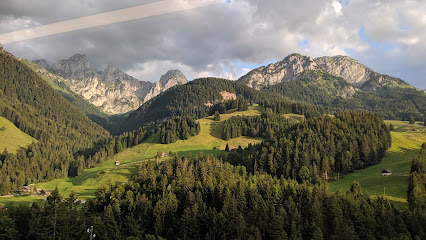
Schloss Oberhofen
Explore the historic Schloss Oberhofen, a majestic castle on Lake Thun, blending rich history, stunning landscapes, and delicious Swiss cuisine.
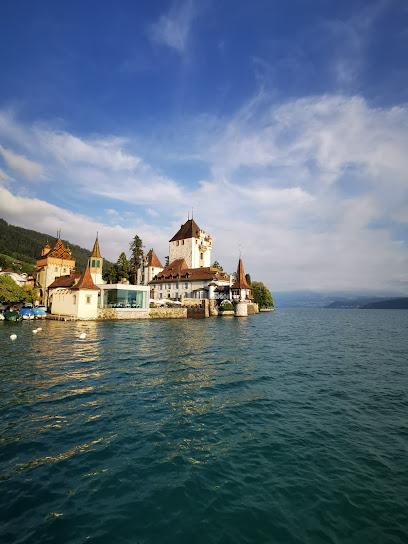
La Passerelle à Farinet
Experience breathtaking views and thrilling hikes at La Passerelle à Farinet, a stunning suspension bridge in the heart of Saillon, Switzerland.
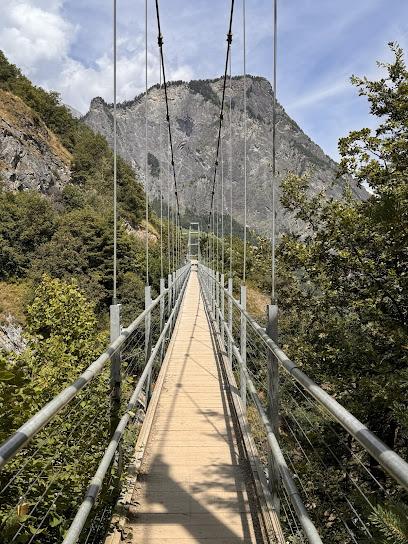
DDLJ Bridge
Discover the enchanting DDLJ Bridge in Saanen, Switzerland, a romantic hotspot for movie lovers and nature enthusiasts, surrounded by stunning alpine scenery.
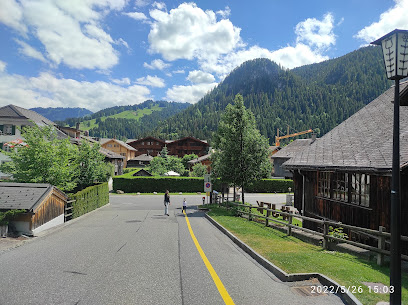
Niederhorn
Experience breathtaking views and outdoor adventures at Niederhorn, a stunning mountain peak in the Bernese Oberland, Switzerland.
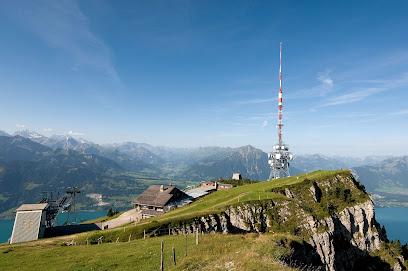
Bergbahnen Destination Gstaad AG - Wispile
Experience the thrill of skiing and the beauty of the Swiss Alps at Wispile, a premier destination for outdoor enthusiasts and nature lovers in Gstaad.
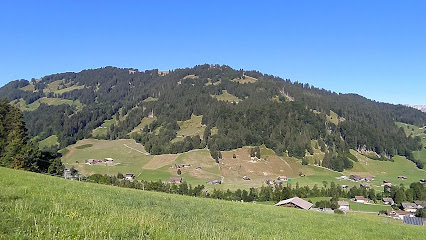
Bergbahnen Destination
Discover the breathtaking beauty and thrilling activities at Bergbahnen Destination in Gstaad, Switzerland, the ultimate alpine escape.
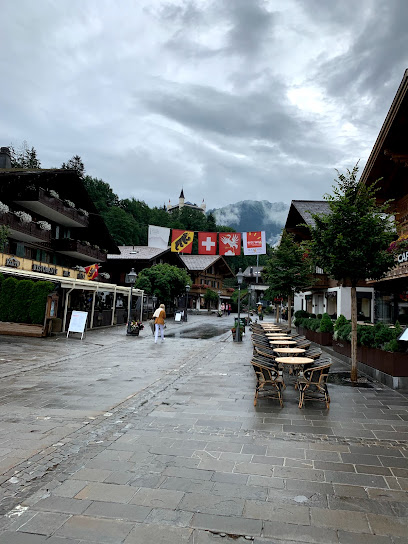
Gstaad Promenade
Explore the stunning Gstaad Promenade, where luxury meets natural beauty in the heart of the Swiss Alps.
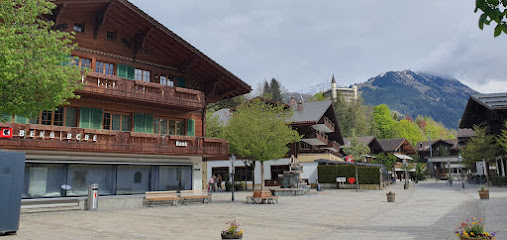
Mürren Tourismus
Discover Mürren Tourismus: Your essential guide to exploring the breathtaking Swiss Alps with expert advice and resources for every traveler.
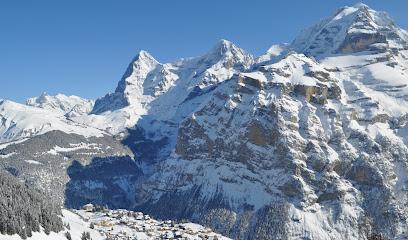
Barbarabrücke
Experience the breathtaking views and serene ambiance of Barbarabrücke, a stunning bridge in Lenk, Switzerland, surrounded by majestic alpine beauty.
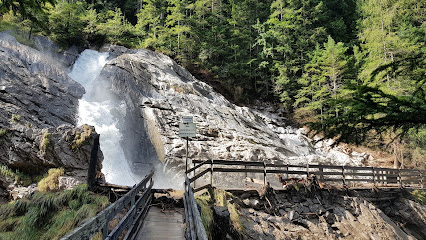
Iffigbach Wasserfall
Explore the stunning Iffigbach Wasserfall, a breathtaking natural attraction in Lenk im Simmental, showcasing the beauty of Switzerland's alpine landscapes.
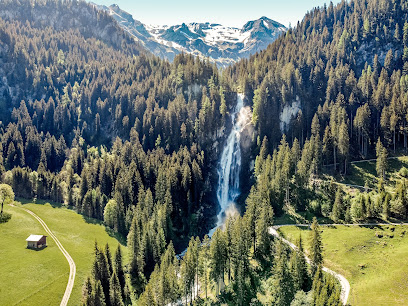
Domaine de la Crausaz
Experience the finest Swiss wines and gourmet brunch at Domaine de la Crausaz, set against the breathtaking backdrop of Lake Geneva.
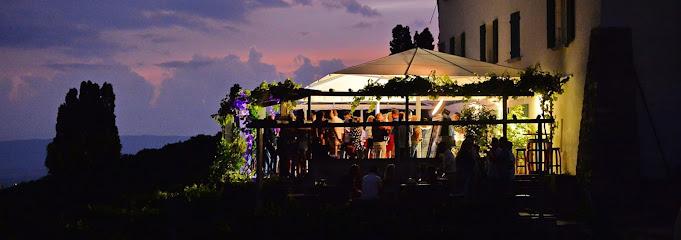
Cascade du Ramaclé
Explore the stunning Cascade du Ramaclé, a breathtaking waterfall surrounded by the serene beauty of Château-d'Oex, Switzerland.
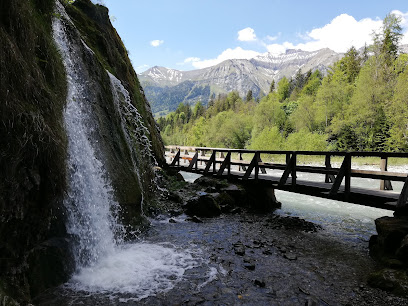
Swiss Ski School Rougemont - Schweizerische Skischule Rougemont Gstaad
Experience thrilling skiing adventures and breathtaking hikes at the Swiss Ski School Rougemont in the picturesque Gstaad region.
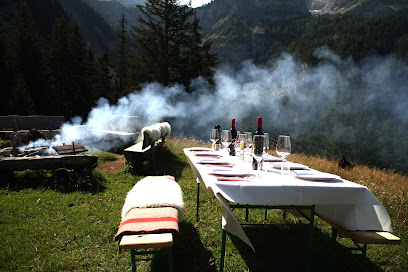
Bergbahnen Destination Gstaad Eggli
Discover the breathtaking landscapes and thrilling winter sports at Bergbahnen Destination Gstaad Eggli, a top ski resort in the Swiss Alps.
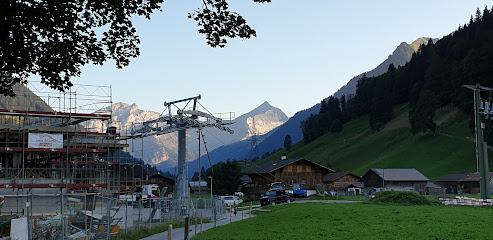
Essential places to dine
Hotel-Restaurant Arc-en-ciel
Experience breathtaking views and exceptional dining at Hotel-Restaurant Arc-en-ciel in Gstaad - your perfect Swiss getaway.
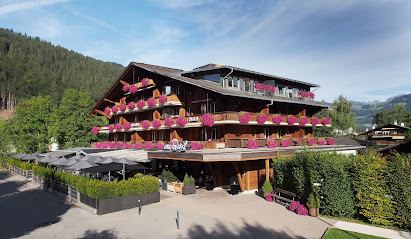
Rialto
Experience authentic Swiss cuisine at Rialto in Gstaad – where tradition meets modern culinary artistry amidst breathtaking alpine views.
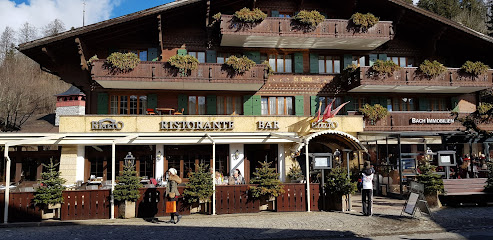
Rössli
Discover the essence of Swiss hospitality at Rössli – where luxury meets tradition in the heart of Gstaad.
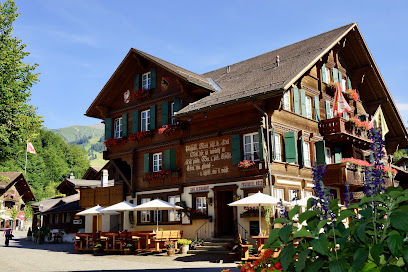
Mango Restaurant Gstaad
Experience the exquisite flavors of India at Mango Restaurant Gstaad, where culinary artistry meets breathtaking alpine views.
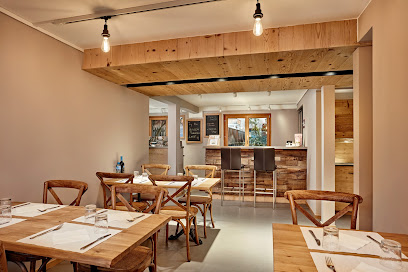
16 ART-BAR-RESTAURANT SAANEN
Experience exquisite Swiss cuisine at 16 ART-BAR-RESTAURANT in Saanen—where tradition meets contemporary flair amidst stunning alpine views.
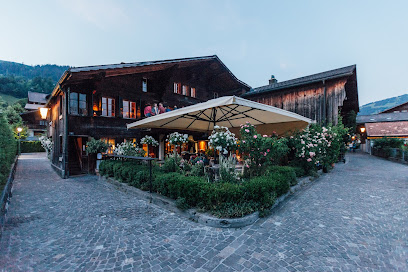
Restaurant Sonnenhof | Restaurant in Saanen
Discover authentic Swiss cuisine at Restaurant Sonnenhof in Saanen - a delightful blend of tradition and breathtaking scenery.
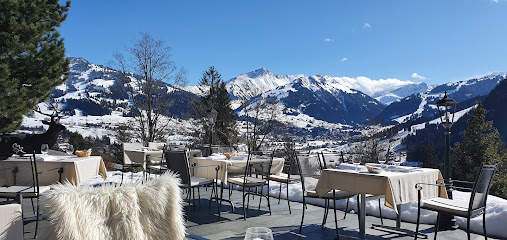
Coop Restaurant Gstaad
Discover authentic Swiss cuisine at Coop Restaurant Gstaad – where local flavors meet cozy alpine charm.
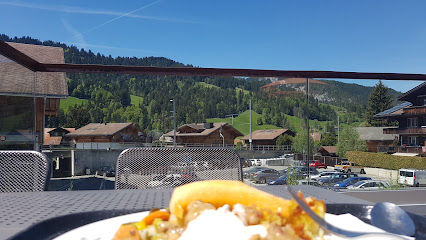
Restaurant Victoria
Experience authentic Swiss cuisine amidst stunning alpine views at Restaurant Victoria in Gstaad.
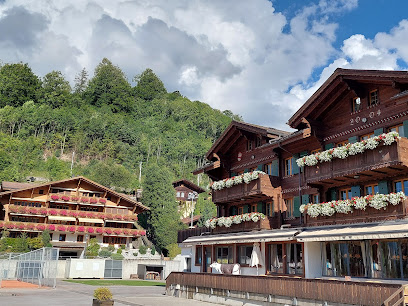
Berghaus Wispile
Experience authentic Swiss cuisine at Berghaus Wispile while enjoying breathtaking mountain views in Saanen's beautiful landscape.
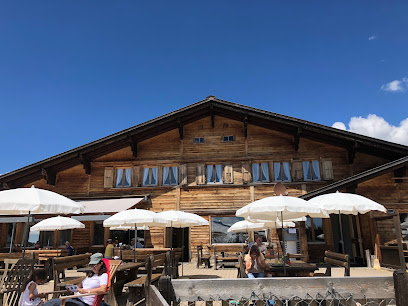
Restaurant La Bagatelle
Experience exquisite Swiss cuisine at Restaurant La Bagatelle in Gstaad – where tradition meets modern culinary artistry.
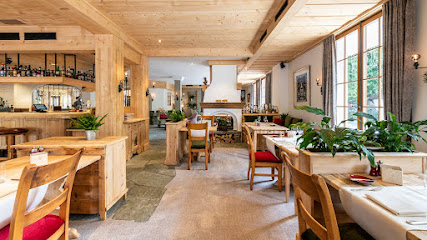
Restaurant La Gare
Savor authentic Swiss cuisine at Restaurant La Gare in Gstaad – where tradition meets taste in a cozy alpine setting.
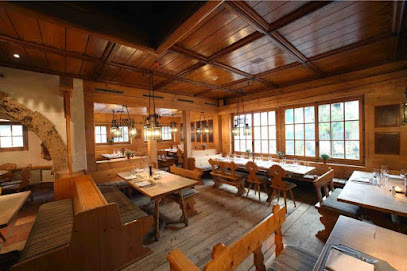
The Boat Restaurant
Experience exquisite cuisine with breathtaking alpine views at The Boat Restaurant in Gstaad.
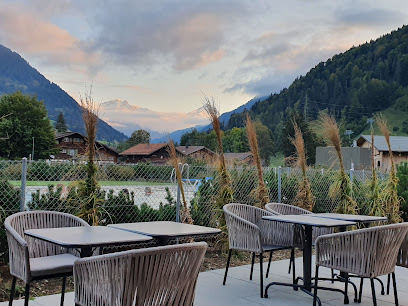
Restaurant Müli
Experience the best of modern French cuisine at Restaurant Müli in Gstaad - where culinary artistry meets breathtaking alpine views.
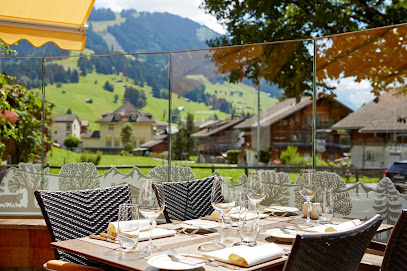
Pizza Basta
Discover authentic Italian flavors at Pizza Basta in Gstaad - where every pizza tells a story.
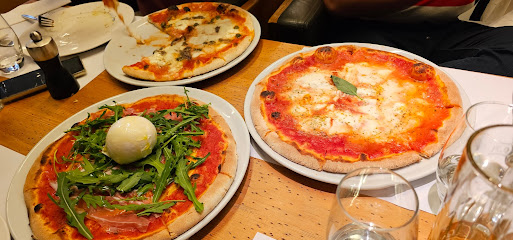
Restaurant Blun-Chi
Savor authentic Chinese flavors at Restaurant Blun-Chi in Gstaad's scenic alpine setting.
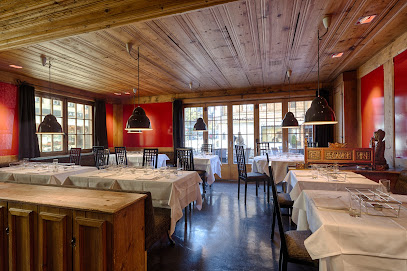
Markets, malls and hidden boutiques
Early beck
Discover Early Beck, Gstaad's premier bakery and café, where artisanal pastries and chocolates meet alpine charm and hospitality.

Louis Vuitton Gstaad
Discover luxury at Louis Vuitton Gstaad, where Swiss elegance meets timeless fashion amidst the stunning Alps.
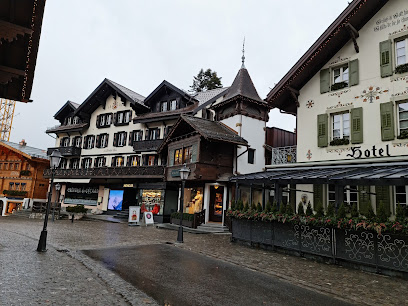
Molkerei Gstaad
Explore the rich flavors of Swiss cheese at Molkerei Gstaad, a charming shop nestled in the heart of the Alps, offering artisanal delights for every palate.
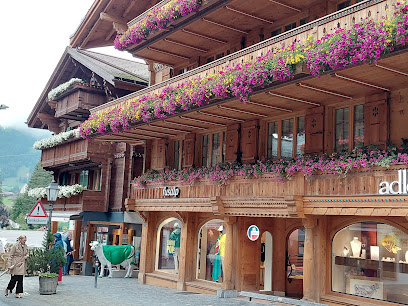
Pure Snowboard Shop
Explore Pure Snowboard Shop in Gstaad for top-notch gear, expert lessons, and a cozy atmosphere for winter sports lovers.
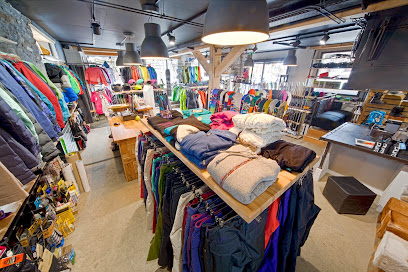
Stebler Gstaad AG
Discover exquisite timepieces at Stebler Gstaad, the ultimate destination for luxury watches in the heart of Gstaad, Switzerland.
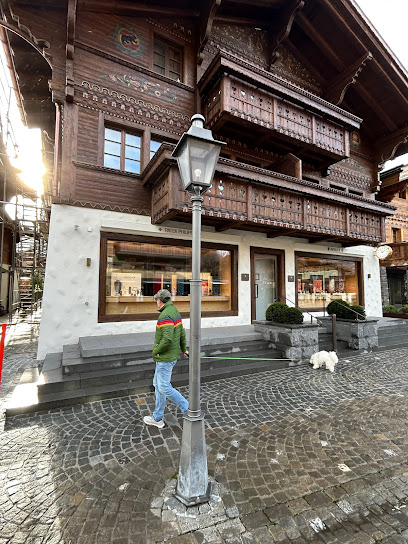
Hermes
Explore the luxury of Hermes in Gstaad, where timeless fashion meets exquisite craftsmanship in a stunning alpine setting.
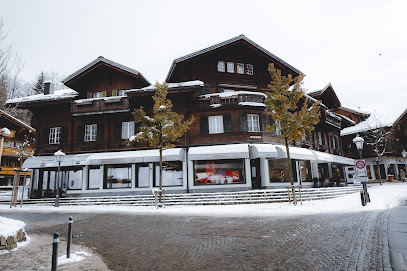
Moncler
Experience the pinnacle of luxury shopping in Gstaad at Moncler, where high fashion meets alpine elegance.
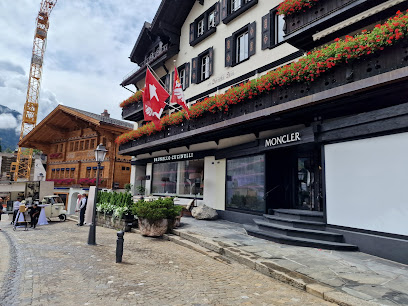
Pernet Comestibles, Pernet Gstaad AG
Explore Pernet Comestibles in Gstaad for an unparalleled selection of gourmet foods, fresh produce, and fine wines that embody local culinary excellence.
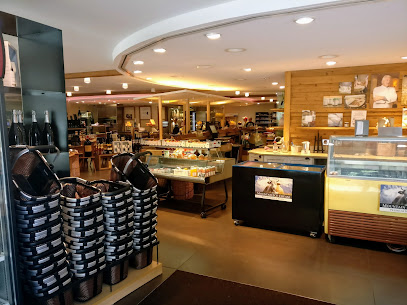
Edelweiss Sport Gstaad
Explore the Swiss Alps with top-quality gear from Edelweiss Sport Gstaad, your trusted sportswear partner in the heart of Gstaad.
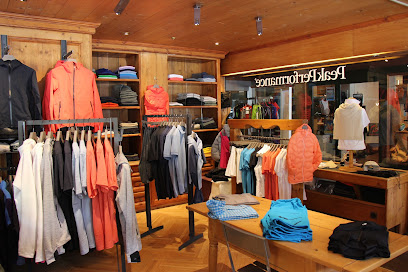
Gstaad Chocolate Shop
Discover the sweet taste of Gstaad with exquisite chocolates, delightful pastries, and rich coffee at Gstaad Chocolate Shop.
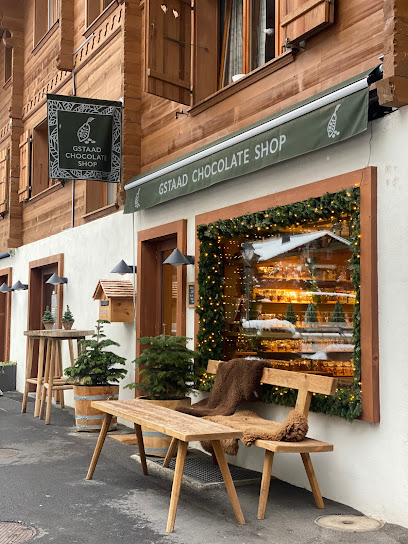
Prada Gstaad
Explore Prada Gstaad for a luxurious shopping experience in the heart of the Swiss Alps, offering high-end fashion and exquisite accessories.
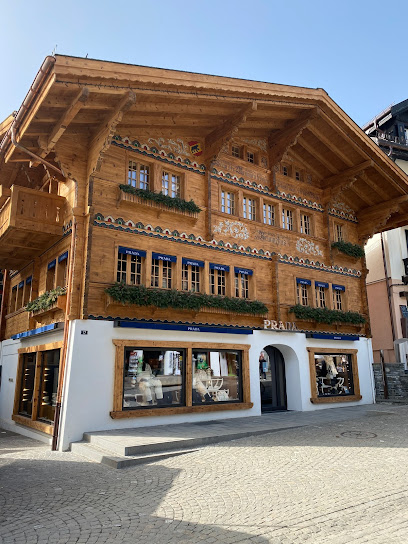
Maison Lorenz Bach
Discover the essence of luxury shopping at Maison Lorenz Bach, Gstaad's premier boutique offering exclusive fashion and exquisite gifts.
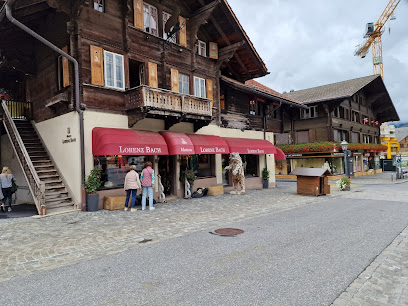
Loro Piana
Discover the epitome of luxury fashion at Loro Piana in Gstaad, where timeless elegance meets exquisite craftsmanship in every garment.
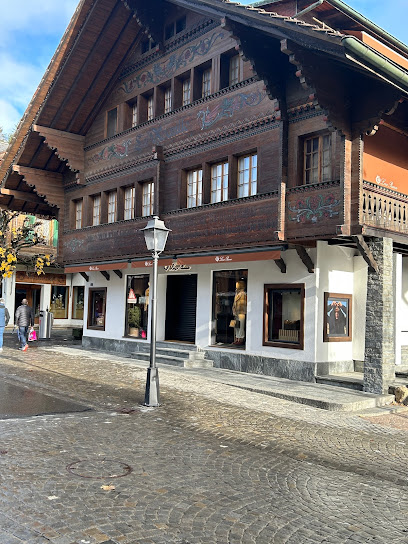
MARINA ANOUILH
Discover the charm of Marina Anouilh, a boutique in Gstaad offering unique fashion and accessories amidst breathtaking alpine views.
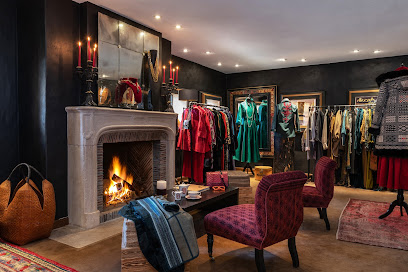
Cadonau Papeterie
Discover unique gifts and local craftsmanship at Cadonau Papeterie, a charming novelty store in Gstaad, Switzerland.
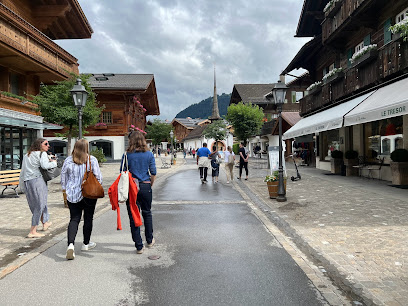
Essential bars & hidden hideouts
Hotel-Restaurant Arc-en-ciel
Discover the perfect blend of exquisite pizza and warm Swiss hospitality at Hotel-Restaurant Arc-en-ciel in scenic Gstaad.
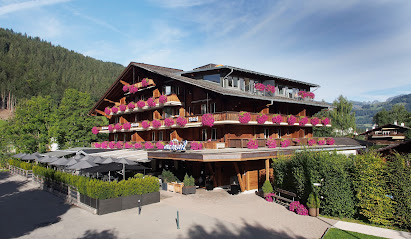
HUUS Gstaad Hotel
Experience the luxury and natural beauty of HUUS Gstaad Hotel, a perfect blend of modern elegance and traditional Swiss hospitality.

Charly's Gstaad
Discover Charly's Gstaad, where delectable pastries meet gourmet coffee amidst the stunning Swiss Alps, perfect for tourists seeking relaxation.
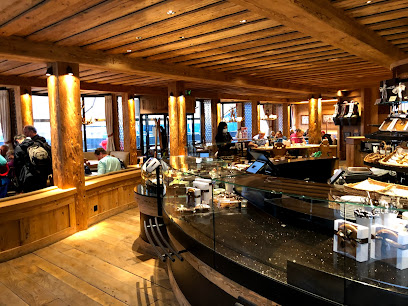
Rialto
Experience the charm of Swiss cuisine at Rialto, a delightful restaurant in Gstaad, offering authentic dishes and breathtaking alpine views.
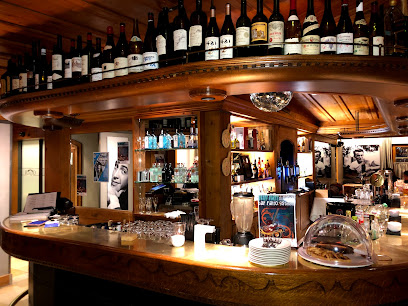
Rössli
Experience the charm of Rössli in Gstaad, where exquisite cuisine meets stunning alpine views in a cozy atmosphere.
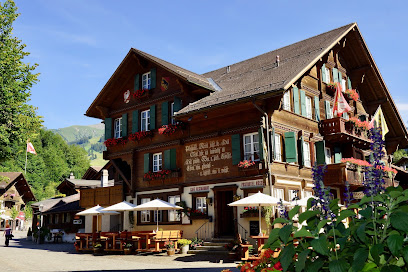
Gstaaderhof
Experience the charm of Gstaad at Gstaaderhof, where exquisite dining meets alpine luxury in a picturesque setting.
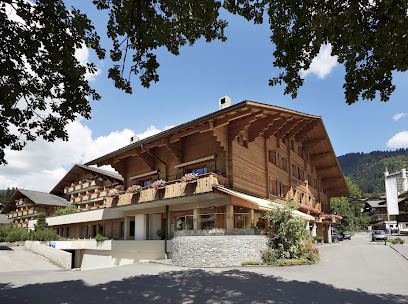
Cappuccino Gstaad
Experience the charm of Swiss hospitality at Cappuccino Gstaad, where elegant dining meets breathtaking alpine views.
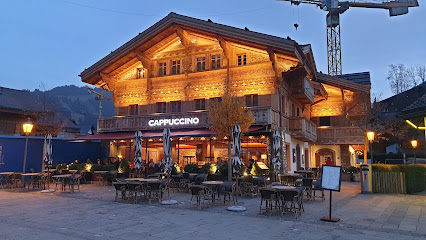
Bernerhof Gstaad
Discover the elegance of Bernerhof Gstaad, a luxurious hotel, bar, and dining experience nestled in the heart of the Swiss Alps.
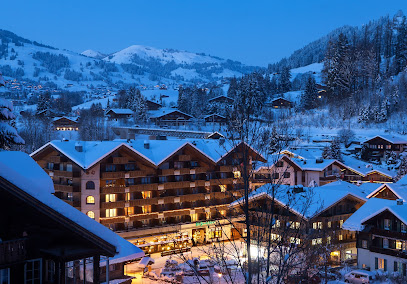
16 ART-BAR-RESTAURANT SAANEN
Experience authentic Swiss cuisine and vibrant nightlife at 16 ART-BAR-RESTAURANT in Saanen, a true gem for tourists seeking local flavors.
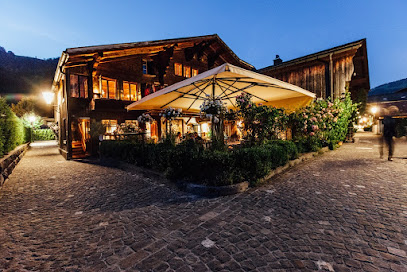
Restaurant Victoria
Experience authentic Swiss cuisine in a cozy atmosphere at Restaurant Victoria, Gstaad, where tradition meets hospitality.
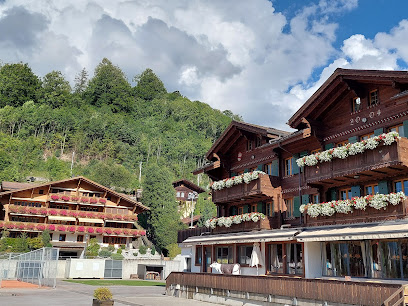
Hotel Olden
Discover the elegance of Hotel Olden, a luxurious retreat in Gstaad offering fine dining and stunning alpine views for the perfect getaway.
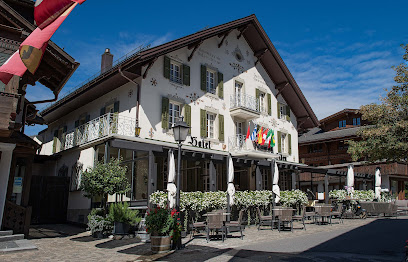
Berghaus Wispile
Discover authentic Swiss cuisine and breathtaking views at Berghaus Wispile, a culinary haven in the heart of the Swiss Alps.
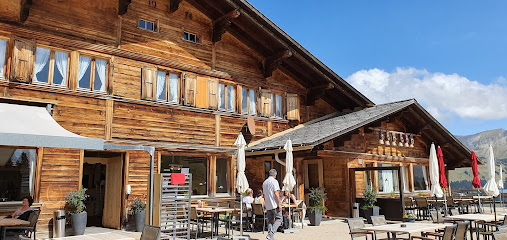
Wally's Gstaad
Experience the best of fast food in Gstaad with Wally's delicious hamburgers and convenient take-away meals, set against stunning alpine views.
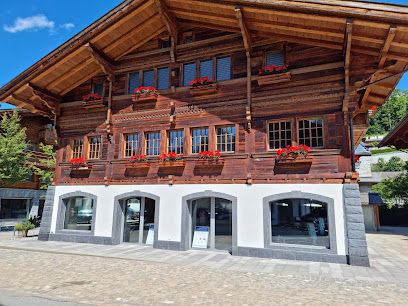
Restaurant La Bagatelle
Explore the exquisite culinary offerings at Restaurant La Bagatelle in Gstaad, where traditional Swiss cuisine meets modern flair amidst alpine beauty.
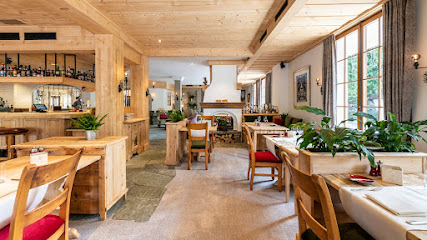
Local Phrases about Gstaad
-
- HelloGruetzi
[ɡruːtsi] - GoodbyeUf widerluege
[uːf ˈviːdərˌlyːɡə] - YesJa
[jaː] - NoNei
[naɪ] - Please/You're welcomeBitte
[ˈbɪtə] - Thank youMerci
[ˈmɛr.si] - Excuse me/SorryEntschuldigung
[ɛntˈʃʊldiɡʊŋ] - How are you?Wie goht's?
[viː ɡoːts] - Fine. And you?Guat. Und dir?
[ɡwat ʊnt dɪr] - Do you speak English?Schwätzed Sie Englisch?
[ˈʃwɛt͡sət ziː ˈɛŋlɪʃ] - I don't understandIch verstah nid
[ɪç ˈfɛrʃta niːd]
- HelloGruetzi
-
- I'd like to see the menu, pleaseIch mächti gärn d'Menu luege
[ɪç ˈmæçti ɡɛrn deɪ ˈmeny lʊɡə] - I don't eat meatIch esse kein Fleisch
[ɪç ˈɛsə kaɪn flaɪʃ] - Cheers!Prost!
[prost] - I would like to pay, pleaseIch mächti bitte zahle
[ɪç ˈmæçti ˈbɪtə ˈtsaːlə]
- I'd like to see the menu, pleaseIch mächti gärn d'Menu luege
-
- Help!Hilf!
[hɪlf] - Go away!Gang wäg!
[ɡaŋ wɛːɡ] - Call the Police!Ruf d'Polizei!
[rʊf dpoliˈtsaɪ] - Call a doctor!Ruf en Arzt!
[rʊf ɛn aʁts] - I'm lostIch ha mich verlaufe
[ɪç haː mɪç fɛɐ̯ˈlaʊ̯fə] - I'm illIch bin krank
[ɪç bɪn kraŋk]
- Help!Hilf!
-
- I'd like to buy...Ich mächti kaufe...
[ɪç ˈmæçti ˈkaʊfə] - I'm just lookingIch luege nur
[ɪç ˈluːɡə nʊr] - How much is it?Wieviel chostet das?
[ˈviːfiːl ˈxoʃtət das] - That's too expensiveDas isch z' teuer
[das ɪʃ ts ˈtɔɪər] - Can you lower the price?Chönd Sie de Priis reduziere?
[ˈkœnd ziː də priːs rəˈdyːtsiːrə]
- I'd like to buy...Ich mächti kaufe...
-
- What time is it?Wieviel Uhr isch es?
[ˈviːfiːl uːr ɪʃ ɛs] - It's one o'clockEs isch eis Uhr
[ɛs ɪʃ aɪs uːr] - Half past (10)Halb (10)
[halb (10)] - MorningMorge
[ˈmɔrɡə] - AfternoonNamittag
[naˈmɪtaɡ] - EveningAbig
[ˈaːbɪɡ] - YesterdayGestere
[ɡəˈʃtɛrə] - TodayHüt
[hyːt] - TomorrowMorn
[mɔrn] - 1Eis
[aɪs] - 2Zwei
[tsvaɪ] - 3Drei
[draɪ] - 4Vier
[fiːɐ̯] - 5Fünf
[fʏnf] - 6Sechs
[zɛks] - 7Sieben
[ˈziːbən] - 8Acht
[axt] - 9Neun
[nɔɪn] - 10Zehn
[tsen]
- What time is it?Wieviel Uhr isch es?
-
- Where's a/the...?Wo isch es...
[vo ɪʃ ɛs] - What's the address?Was isch d'Adresse?
[vas ɪʃ dadrəˈsə] - Can you show me (on the map)?Chönd Sie mer das zeige (uf em Plan)?
[ˈkœnd ziː mɛr das ˈtsaɪɡə (ʊf ɛm plan)] - When's the next (bus)?Wänn fahrt de nächschte (Bus)?
[vɛn fɑrt də nɛːkʃtə (bʊs)] - A ticket (to ....)Ein Billett (nach ....)
[aɪn bɪˈlɛt (nax)]
- Where's a/the...?Wo isch es...
History of Gstaad
-
Gstaad’s history dates back to the medieval period when it was first settled by the Alemanni, a Germanic tribe. The region was primarily used for agriculture and livestock farming. The first mention of Gstaad in historical records was in the 13th century, when it was under the control of the Dukes of Savoy.
-
In the late 19th century, Gstaad began to transform from a quiet farming community into a popular resort destination. The construction of the Montreux-Oberland Bernois (MOB) railway in 1905 made the area more accessible, paving the way for the development of hotels and leisure facilities. This period marked the beginning of Gstaad’s reputation as a luxury destination.
-
During World War II, Switzerland maintained neutrality, and Gstaad became a haven for many seeking refuge from the conflict. The region’s hotels and chalets provided shelter for displaced individuals and hosted numerous clandestine meetings. Gstaad's remote location and discreet charm made it an ideal spot for these activities.
-
After World War II, Gstaad saw significant development as a luxury resort. The construction of high-end hotels, private chalets, and world-class skiing facilities attracted the international jet set. Celebrities such as Elizabeth Taylor, Richard Burton, and Grace Kelly frequented Gstaad, solidifying its status as a glamorous holiday destination.
-
Gstaad is renowned for its cultural and sporting events, which have become integral to its identity. The Menuhin Festival, established in 1957 by violinist Yehudi Menuhin, is a prestigious classical music event that draws global talent. Additionally, the Swiss Open, an ATP tennis tournament held in Gstaad since 1915, attracts top players and sports enthusiasts.
-
Despite its modern luxuries, Gstaad has preserved much of its traditional Alpine culture. The region is known for its wooden chalets, which adhere to strict architectural guidelines to maintain the area's historical aesthetic. Local customs, such as yodeling, cheese-making, and traditional festivals, are celebrated and play a crucial role in Gstaad’s cultural heritage.
Gstaad Essentials
-
Gstaad is located in the Bernese Oberland region of Switzerland. The nearest international airports are Geneva Airport (GVA) and Zurich Airport (ZRH), both approximately 2 to 3 hours away by train. From Geneva or Zurich, you can take a train to Montreux and then change to the scenic GoldenPass Line, which takes you directly to Gstaad. Alternatively, you can rent a car and drive from either airport, enjoying the picturesque Swiss countryside along the way.
-
Gstaad is well-connected by public transport. The train station is centrally located, and the Swiss Federal Railways (SBB) network offers frequent connections to major cities. Local buses operated by PostBus Switzerland connect Gstaad with surrounding villages. Taxis are available, but they can be expensive. Many visitors prefer to walk or rent bicycles to explore the town. For those staying in hotels, some offer shuttle services to and from the train station and nearby attractions.
-
The official currency in Switzerland is the Swiss Franc (CHF). Credit and debit cards are widely accepted in Gstaad, including in hotels, restaurants, and shops. ATMs are plentiful and can be found throughout the town. It is advisable to carry some cash for small purchases, especially in more remote areas. Note that tipping is not obligatory but appreciated, typically rounding up the bill or leaving 5-10% for exceptional service.
-
Gstaad is generally very safe for tourists. However, standard precautions should be taken. Keep an eye on your belongings in crowded places, and avoid walking alone late at night in unfamiliar areas. There are no specific high-crime areas targeting tourists, but it's always wise to stay vigilant and aware of your surroundings.
-
In case of emergency, dial 112 for immediate assistance. Gstaad has a local police station and medical facilities, including the Gstaad Hospital. It's recommended to have travel insurance that covers medical emergencies. Pharmacies are available in town for minor health issues and over-the-counter medications. For non-urgent health consultations, several general practitioners and specialists are available.
-
Fashion: Do dress smart-casual, especially when dining out or attending events. Avoid overly casual attire in upscale establishments. Religion: Do respect local customs and traditions, although Gstaad is not particularly religious. Public Transport: Do be punctual and respect the quiet nature of Swiss trains. Don't be loud or disruptive. Greetings: Do greet people with a friendly 'Grüezi' (hello in Swiss German) or 'Bonjour' (in French). A firm handshake is also customary. Eating & Drinking: Do try local delicacies like fondue and raclette. Don't rush meals; dining is often a leisurely affair in Gstaad.
-
To experience Gstaad like a local, visit the weekly Farmer's Market held in the center of town where you can buy fresh produce and local crafts. Engage with locals, who are often friendly and open to sharing stories about the region. Don't miss out on the opportunity to hike or ski in the surrounding mountains, and enjoy a traditional Swiss meal in one of the many charming alpine huts. For a unique experience, attend one of the classical music concerts or polo matches that Gstaad is famous for.
Nearby Cities to Gstaad
-
Things To Do in Vevey
-
Things To Do in Thun
-
Things To Do in Murren
-
Things To Do in Lausanne
-
Things To Do in Interlaken
-
Things To Do in Bern
-
Things To Do in Grindelwald
-
Things To Do in Zermatt
-
Things To Do in Geneva
-
Things To Do in Lucerne
-
Things To Do in Annecy
-
Things To Do in Ascona
-
Things To Do in Locarno
-
Things To Do in Basel
-
Things To Do in Lugano










